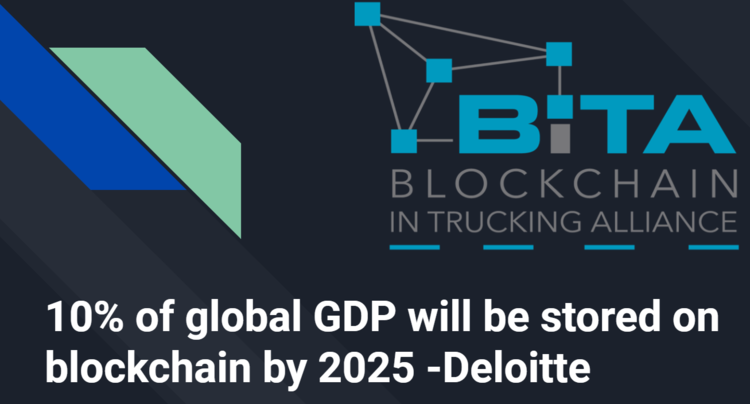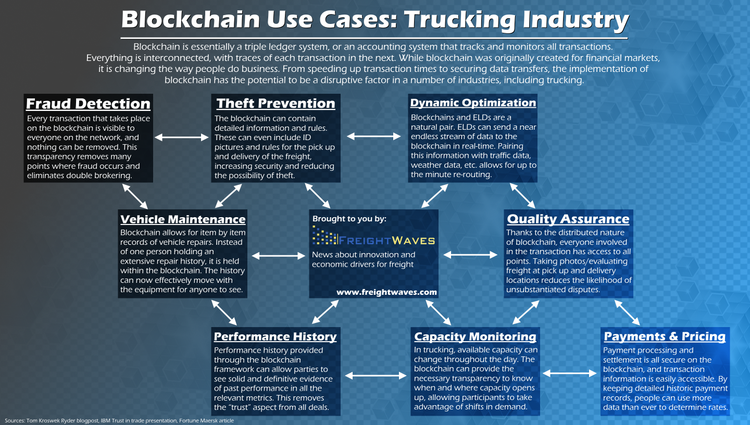
Deloitte projects by 2025 that 10% of global GDP to be built on blockchain applications

In May 2017, Deloitte tweeted that 10% of global GDP would be built on top of blockchain applications. This huge and ambitious claim was made because of the transformative nature of the technology and the effect it will have on society. For logistics and transportation, it will have a bigger impact promising to shake up the $8T industry.
What is blockchain?
To put it simply, a blockchain is like a database, it’s a way of storing records of value and transactions. However, calling blockchain a new type of database is like saying email is a new way of sending people letters. While the blockchain is a database, that definition doesn’t explain the true genius behind how the blockchain stores records of value and transactions.
Where the blockchain offers significant potential is in transactions where parties don’t trust each other. There are many instances in trucking where two parties do not trust each other or the need to verify someone is very high. Examples include:
- Freight brokerage
- Safety compliance
- Payment transactions
- Fuel purchases and repricing
- Driver employment records
- Freight payment and bills of lading processing
- Factoring
- Truck maintenance records for resale purposes
- Shared assets among different parties
- Load confirmation sheets
- Forward contract commitments
- Asset tracking
- Chain of custody for freight
- Insurance records
- Claims
- Food safety
- Cross border customs documentation
A decentralized database built on the blockchain removes the need for centralized institutions and databases. Everybody on the blockchain can view and validate transactions creating transparency and trust.
Trust lays at the core of the blockchain – it provides a system of trust between people without the need for an intermediary involved in the transactions. The blockchain allows people to transact between each other with anything of value.
No comments:
Post a Comment